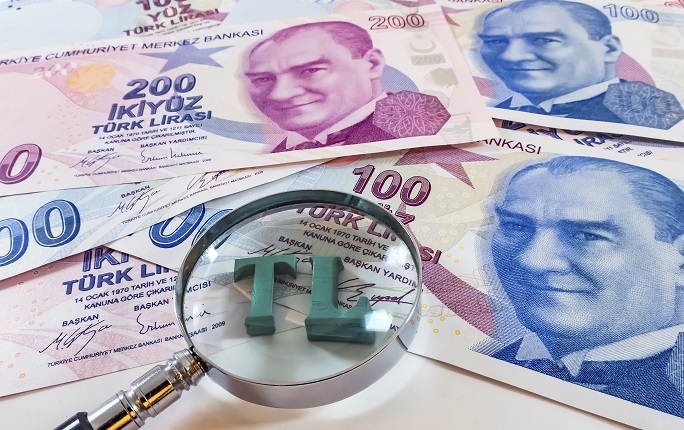Presently, the currencies of the emerging economies are having a roller coaster ride. Foreign Portfolio Investment (FPI) outflow, and the uncertainty surrounding the future course of action by the US Federal Reserve (Fed) and the European Central Bank (ECB) are building pressure on the currencies of the emerging markets. US dollar index that measures the value of the USD relative to a basket of foreign currencies, often referred to as a basket of U.S. trade partners’ currencies is up to 96.12 (as on 19 November 2021). The index going up should be read as USD gaining strength when compared to other currencies, and the emerging markets currencies depreciating against the USD.
Though, most of the emerging markets are facing volatility in the currency market, the issue is more prominent for Turkey. Turkish lira has been witnessing continuous depreciation against USD, and now stands at 11.87 lira to one USD (as on 23 November 2021). The Turkish economy is also facing the heat of rising prices, with the inflation rate close to 20 percent. The immediate policy response to a rising inflation rate would be a monetary policy tightening. Theoretically, to support growth, Central Banks would adopt a loose monetary policy by cutting down the interest rate, and thereby increasing the money supply in the economy. On the other hand, during a high inflationary phase, Central Banks would tighten the monetary policy by raising the interest rate, and thereby controlling the money supply in the economy. Presently, most of the countries are facing the dilemma on where to focus, aid economic recovery or control inflation rate. Turkish economy is no different. Yet, when the other economies are delaying or slowly starting the process of monetary policy normalisation, Turkish Central Bank is continuing with the loose monetary policy measures by cutting down the interest rate. Recently, the Turkish Central Bank has cut the interest rate from 16 percent to 15 percent. The continuation of the loose monetary policy along with the rising prices is adding more burden to the Turkish economy. For instance, an increased money supply accompanied by higher inflation rate would further push up the prices.
Depreciating Lira
The high inflation rate along with the loose monetary policy is building pressure on the Turkish lira, witnessing a free fall in its value. There exists a direct relationship between the interest rate and the value of the currency. At higher interest rates, lender in an economy will be able to offer a higher return relative to other countries. Therefore, higher interest rates attract foreign capital and leads to currency appreciation. However, if the inflation rate in the domestic economy is higher in comparison to other countries, the benefit of high interest rate is mitigated, pulling the value of the currency down. On the other hand, a low interest rate in comparison to other countries would lead to a capital outflow and tend to decrease the value of the currency. For Turkey, both factors (inflation and interest rate) are not acting in favour. The low interest rate and high inflation rate is leading to foreign capital outflow. The capital outflow, in turn, pushes the value of the currency down.
And a continuously depreciating currency also opens door for imported inflation. The rise in the price of the commodities due to the rise in the price of imported commodities is often termed as imported inflation. Globally, the supply side constraints have pushed up the prices of commodities. And, as the currency is depreciating, imports become more expensive as the country needs to spend more to purchase the same quantity of goods and services. Thus, prices of the imported goods could also rise due
to the depreciating value of the currency. Turkey being a net importer, the sustained depreciation of the currency could have a direct impact on the inflation.
During 2013 taper tantrum, Turkey was categorised as one among the fragile five economies along with India, Brazil, South Africa, and Indonesia. As the Fed and ECB starts the withdrawal of their loose monetary policy starting with the tapering of bond purchases, its spill over effects would be visible in the emerging markets including Turkey. In such a scenario, the emerging market economies should have sound domestic policies that would help to minimise the negative impact of such global developments.










